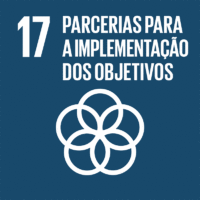Ciência_Iscte
Publicações
Descrição Detalhada da Publicação
Chaos in World Politics: A Reflection The Drop of Honey Effect
Título Livro
Chaos Theory in Politics
Ano (publicação definitiva)
2014
Língua
Inglês
País
Países Baixos (Holanda)
Mais Informação
Web of Science®
Esta publicação não está indexada na Web of Science®
Scopus
Esta publicação não está indexada na Scopus
Google Scholar
Esta publicação não está indexada no Overton
Abstract/Resumo
Chaos theory results from natural scientists’ findings in the area of non-linear dynamics. The importance of related models has increased in the last decades, by studying the temporal evolution of non-linear systems. In consequence, chaos is one of the concepts that most rapidly have been expanded in what research topics respects. Considering that relationships in non-linear systems are unstable, chaos theory aims to understand and to explain this kind of unpredictable aspects of nature, social life, the uncertainties, the nonlinearities, the disorders and confusion, scientifically it represents a disarray connection, but basically it involves much more than that. The existing close relationship between change and time seems essential to understand what happens in the basics of chaos theory. In fact, this theory got a crucial role in the explanation of many phenomena. The relevance of this kind of theories has been well recognized to explain social phenomena and has permitted new advances in the study of social systems. Chaos theory has also been applied, particularly in the context of politics, in this area. The goal of this chapter is to make a reflection on chaos theory – and dynamical systems such as the theories of complexity – in terms of the interpretation of political issues, considering some kind of events in the political context and also considering the macro-strategic ideas of states positioning in the international stage.
Agradecimentos/Acknowledgements
--
Palavras-chave
Chaos,World politics,Economics,Drop of honey effect
Classificação Fields of Science and Technology
- Matemáticas - Ciências Naturais
- Sociologia - Ciências Sociais
- Ciências Políticas - Ciências Sociais
Contribuições para os Objetivos do Desenvolvimento Sustentável das Nações Unidas
Com o objetivo de aumentar a investigação direcionada para o cumprimento dos Objetivos do Desenvolvimento Sustentável para 2030 das Nações Unidas, é disponibilizada no Ciência_Iscte a possibilidade de associação, quando aplicável, dos artigos científicos aos Objetivos do Desenvolvimento Sustentável. Estes são os Objetivos do Desenvolvimento Sustentável identificados pelo(s) autor(es) para esta publicação. Para uma informação detalhada dos Objetivos do Desenvolvimento Sustentável, clique aqui.

 English
English



